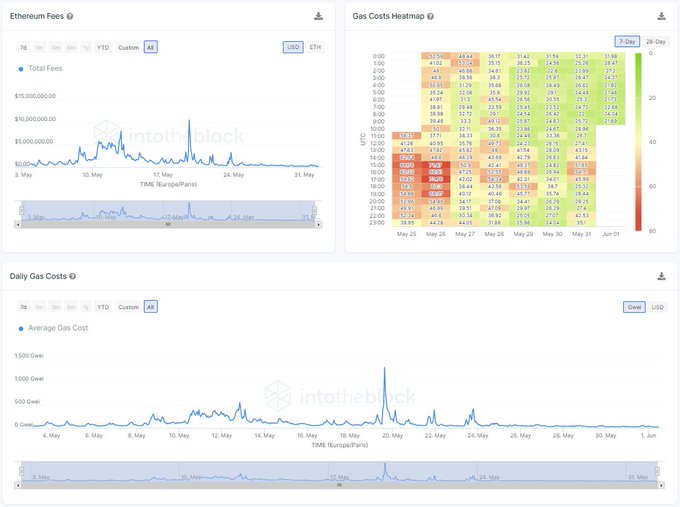The recent market crash made Ethereum (ETH) shed off more than half of its price from a high of $4,350 to lows of $2,000.
The second-largest cryptocurrency based on market capitalisation was up by 2.91% in the last 24 hours to trade at $2,682, according to CoinMarketCap.
According to digital asset firm Glassnode, Ethereum exchange inflow volume reached a one-month low of $34,277,495.88.
This trend signifies an attitude of sitting on the fence because more users keep their Ether in cold storage for speculative or future purposes, which is usually bullish.
Market analyst Lark Davis recently stated that big money flow was piling in Ethereum’s decentralised finance (DeFi) sector, and this was also bullish.
DeFi has aided Ethereum’s bull run since the second-largest cryptocurrency broke the previous record of $1,400 set in 2018. Some features like smart contracts in the ETH network are in high demand in the non-fungible token (NFT) and DeFi sectors.
DeFi on the ETH network experienced an exponential expansion over the past few months as the number of users increased by 1,300% to hit 2.1 million. The total value locked (TVL) in smart contracts shot up by 9,000% and stood at $113 billion.
ETH hourly fees have dropped from a record-high of $10.5 million
According to data science company IntoTheBlock:
“Ethereum hourly fees have dropped from the recent ATH of $10.5 million on May 18 to averaging $284,888.33 over the past 3 days.”
ETH has been facing high fees, forcing some users to shun it for cheaper alternatives.
On the other hand, Ethereum is experiencing a supply scarcity, as explained by IntoTheBlock.
“From the current 116.1m ETH in circulation: 5.21m ETH deposited in the ETH2 staking contract, 9.58m ETH currently locked in DeFi Protocols, and 5.92m ETH have been withdrawn from centralized exchanges.”
Time will tell whether the supply scarcity and low exchange inflows in the ETH network will boost Ethereum’s price upwards.
Image source: Shutterstock
Credit: Source link























